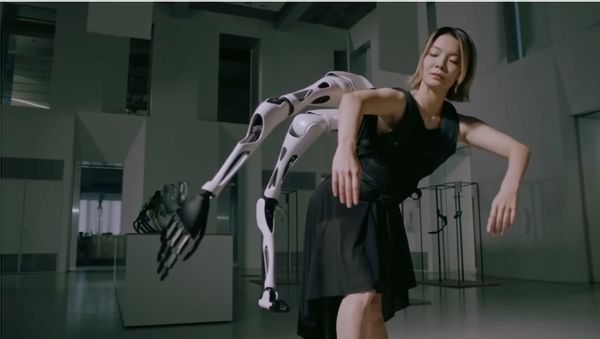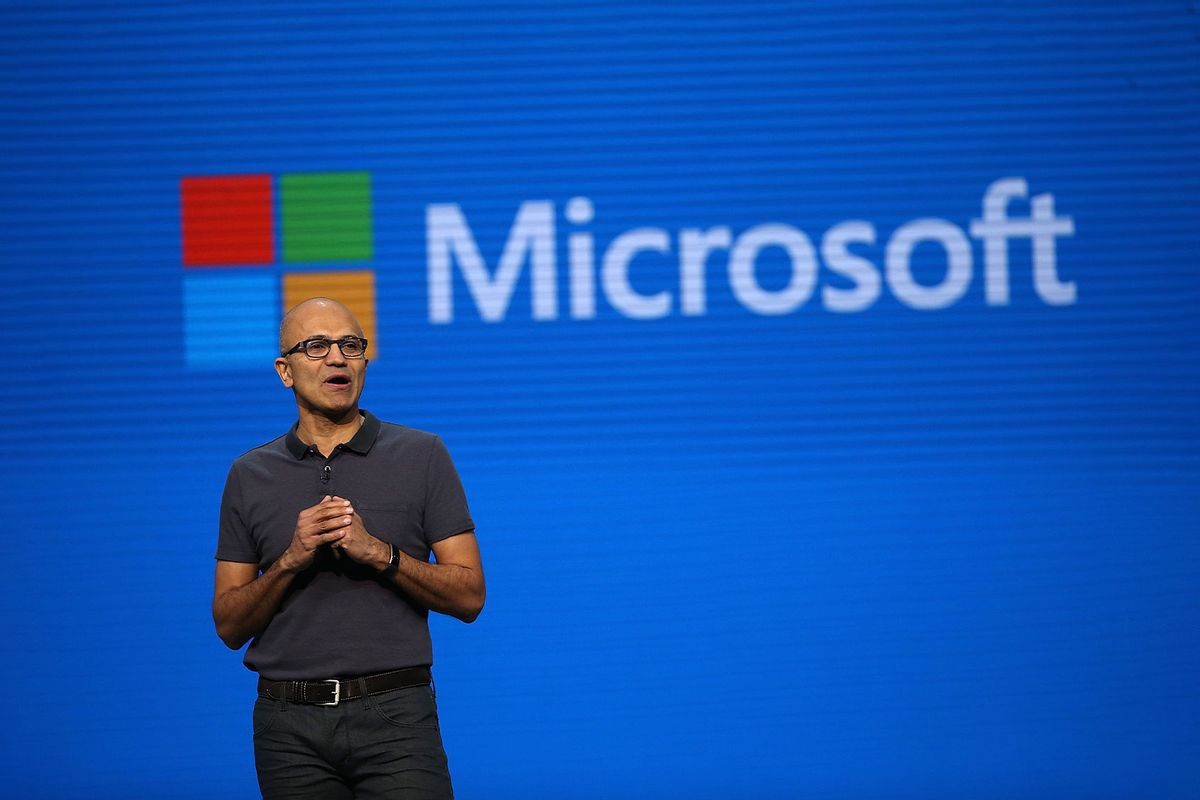This week's tech news was almost entirely devoured by a massive wave of coverage on the fast emerging changes promised by artificial intelligence. Sure, there were plenty of hot takes worth mulling in the op-ed sections of the big outlets. But amid the shifting discourse and avalanche of AI news, we can break it down to some key, must-know items: the most important is about the emerging marriage between Microsoft and OpenAI, the company behind ChatGPT. Microsoft has dumped more than $100 million into OpenAI, a relationship that has privacy advocates and technologists concerned.
But before we sum up the existential dread-mill of AI news, can we just take a moment to appreciate how unbelievably cool it would be to have AI-powered robotic arms that can turn you into Dr. Otto Octavius from Spiderman?
Because that's what Japanese company Exii recently premiered with their Jizai Arms — a robotic arm bag, or "supernumerary robotic limb system" that enables humans to control six additional AI robotic limbs. Aside from the machine's potential off-label use in LARPing, it's a perfect example of how AI is can be used to improve the lives of those with disabilities — a use that is emerging quickly in medical tech, particularly to the future advantage of those with paralysis.
 A dancer wears a robotic multi-arm backpack from Japanese company Jizai Arms, which she is able to control with AI assistance. (Screenshot: Jizai Arms / Rae Hodge)Hope for humanity aside, though, let's turn to Microsoft. The big news this week was that Microsoft announced that AI tech (including OpenAI's) would be integrated into new computers, operating systems, and even certain chips.
A dancer wears a robotic multi-arm backpack from Japanese company Jizai Arms, which she is able to control with AI assistance. (Screenshot: Jizai Arms / Rae Hodge)Hope for humanity aside, though, let's turn to Microsoft. The big news this week was that Microsoft announced that AI tech (including OpenAI's) would be integrated into new computers, operating systems, and even certain chips.
At the same time, OpenAI announced that it will start using Bing — not Google — as the default search engine for ChatGPT, a move that's heating up the Search War between the two tech titans. But Google isn't out of the fight just yet. Despite struggling initially to get their Bard AI assistant moving, former OpenAI execs just secured an eye-popping $450 million in funding for a Google-backed venture called Anthropic.
Microsoft took heat this week, however, for bankrolling its AI aspirations at the cost of its workers — freezing pay for many, after already axing 10,000 workers last month. According to the Register, CEO Satya Nadella broke the bad news in an email, even though his own pay increased 10 percent, bringing his salary up to $55 million.
Bill Gates, meanwhile, said he thinks AI could kill Google Search and Amazon as we know them. Maybe, maybe not — but Google isn't making any friends in its latest announcement that it will allow companies to publish AI-generated ads in your search results based on your data.
If you thought nothing could get more soulless and banal than the internets biggest data titan relying on the lack of US data privacy laws so it can serve you AI-generated ads then — in the words of Billy Mays — just wait, there's more! Like AI-generated music. Congrats go out to Universal Music Group for making all of us feel a little more dead inside this week when they announced new contract with AI sound company Endel, as reported by Pitchfork.
The companies say they just want to focus on sleep and meditation soundscapes. But the money quote in Pitchfork's piece comes from Endel's co-founder and chief composer, Dmitry Evgrafov, who said last year: "We're able to create albums with the push of a button."
Want more health and science stories in your inbox? Subscribe to Salon's weekly newsletter The Vulgar Scientist.
Meanwhile, in commercial sectors where "content" is "produced" — as opposed to spheres where art, music or literature are the outcomes of original creation — there's a lot of talk about the use of AI as a "creative partner." Given that an AI passed a Turing Test this week, there may be more to that "partner" label than one would want to admit.
And even as industry leaders confirm that job loss fears will soon be job loss realities due to the break-neck pace of AI deployment and development, there's no stopping the tone-deaf emergence of products like Phoenix, an AI-powered robot worker designed to look humanoid.
Without government and industry regulation, AI's exponential growth already suggests that it will be nearly inescapable in the near future. It's being used on students in schools, and to create chaos online with fake terrorist events. Opera browser has a new built-in generative AI assistant and TikTok's using an AI chatbot. You can now get an AI clone of someone and pretend it's your girlfriend — and there's even a buzzy new AI legal assistant on the scene called Casetext.
The spread is happening beyond the US, of course.
OpenAI's app is now available in 10 more countries than it was last week — topping more than half-a-million installs in its first six days on Apple Store, and giving Apple a 30% cut of the profits. Meanwhile, there is a security hole in the heart of OpenAI's ChatGPT (and Bing) that's big enough to drive a MacBook truck through.
One of those 10 new countries is the UK, which has only just this week finally said out loud that, yes, AI may indeed some form of existential risk. As far overdue as that statement is, it's still more than what the US has put on paper so far as Congress, which doesn't even include basic data privacy laws — much less a comprehensive AI governance document.
For now, the only regulations on AI are those which appear to come from the industry itself — like those from OpenAI and Microsoft.
The best reads this week on AI
- How to talk about A.I. like an insider [ CNBC ]
- Waluigi, Carl Jung, and the Case for Moral AI [ Wired ]
- The lightning onset of AI—what suddenly changed? An Ars Frontiers 2023 recap [ Ars ]
- What is AI and how will it change our lives? NPR Explains. [ NPR ]
- Artificial Intelligence Enters the Political Arena [ CFR ]
- Timnit Gebru on her sacking by Google, AI's dangers and big tech's biases [ The Guardian ]
- What is Google Gemini? The next-generation AI model explained [ TR ]



Shares